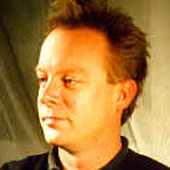Astonishing Transatlantic Cultural Comparisons
Are the United States and Europe really as divergent when it comes to social values as is commonly believed?
February 2, 2010
The conventional wisdom holds that Americans are nationalistic and religious, while Europeans are post-nationalist and secular. But even here there is reason to doubt such simple binary stereotypes.
The evidence on such attitudes comes from the World Values Survey and the International Social Survey Program.
Yes, Americans are patriotic and nationalist, but according to the World Values Survey, not more so than some Europeans. Unsurprisingly, Germans are least proud of their nation.
But unexpectedly and rather cheerily, the Portuguese are the most patriotic, with the Irish tied for second place. Granted, Americans are more likely than any Europeans to think that their country is better than other nations.
But more Portuguese, Danes and Spaniards feel that the world would be improved if other people were like them.
It is hard to say what the difference between those two responses is. And, the other way around, proportionately more Americans admit that there are aspects of their country that shame them than do the Germans, the Austrians, the Spanish, French, Danes and Finns. The Finns, Danes, Norwegians and Swedes are all more willing to fight for their country than the Americans.
Even on religion, there is reason to question the usual stereotypes of an absolute polarity between the United States and Europe. In 1999, a smaller percentage of Americans described themselves as atheists than did Europeans — by a small margin, with the Irish and the Austrians almost indistinguishably close to the Americans.
On the other hand, more Italians and Portuguese than Americans consider themselves religious. A higher percentage of Americans believe in God than northern Europeans, but the numbers are broadly comparable with the Mediterranean countries and Ireland.
Proportionately more Americans than any Europeans pray several times a day, but fewer Americans do so weekly than the British, the Italians, the Irish, the Spanish, the Portuguese and the Swiss.
Weekly church attendance is also lower in the United States than in several European nations. American churches are not better endowed or financed than many European nations.
In other words, America is more religious than northern Europe, but in quantifiable terms, it is comparable to the Mediterranean.
Does the more fervent faith of Americans, if that is what it is, imply a corresponding discount on science? That is often the implication of transatlantic comparisons in this respect — that there is a zero-sum trade-off between religion and science.
And, of course, creationism is used as the main evidence. True, proportionately fewer Americans firmly agree with the Darwinian theory of evolution than any Europeans other than in Northern Ireland.
But in other respects, Americans believe in the Enlightenment project of humanity's ability to understand and master nature. They fall in the European middle ground in approving animal testing to save human lives.
They understand better than almost all Europeans the falsity of the proposition that all manmade chemicals cause cancer if you ingest enough of them. They understand better than almost any Europeans that it is not true that anyone exposed to any degree of radioactivity will certainly die. Proportionately fewer Americans agree with the proposition that science does more harm than good than any Europeans but the Dutch, Norwegians, Swedes and French.
Thus, while creationism may hold firmer sway in the United States than in Europe, in other respects the realm of scientific quackery in Europe is wider than in the United States.
Astrology is more widely believed in several European nations for which we have figures than in the United States. Homeopathy is arguably the most unscientific of opinions in its outright rejection of the single most fundamental assumption of the scientific method — that we can identify and harness causality empirically.
And it has practical consequences. No one has ever died of creationism, but there are deaths attributable to misguided reliance on homeopathy. Homeopathy is used much more often in Europe than the United States — five times as much in the UK, ten in France.
These are just a few examples of the way in which the presumed contrast across the Atlantic is not, in fact, nearly as stark as opinion among the chattering classes has it.
Editor’s Note: This is Part IV of a five-part series adapted from THE NARCISSISM OF MINOR DIFFERENCES by Peter Baldwin, published by the Oxford University Press. Copyright 2010 Peter Baldwin. Reprinted with permission of the author.
Read Part III here.
Takeaways
Even on religion, there is reason to question the usual stereotypes of an absolute polarity between the United States and Europe.
Proportionately more Americans admit that there are aspects of their country that shame them than do the Germans, the Austrians, the Spanish, French, Danes and Finns.
Yes, Americans are patriotic and nationalist, but according to the World Values Survey, not more so than some Europeans.
Astrology is more widely believed in several European nations for which we have figures than in the United States.
Americans believe they fall in the European middle ground in approving animal testing to save human lives.
